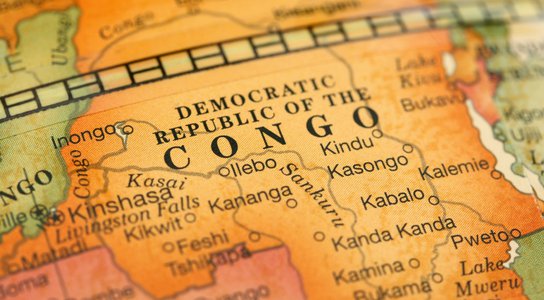New documents related to a case in the UK high court suggest that controversial middleman Dan Gertler received and paid millions in bribes on behalf of Eurasian Natural Resources Corporation (ENRC) in Democratic Republic of Congo. Since 2011 Global Witness has called into question the legitimacy of Gertler’s deals with ENRC. The new evidence lends further credence to those pioneering investigations.
The UK’s Serious Fraud Office (SFO) has been investigating ENRC for over five years, during which time the company has sought to block the disclosure of an internal investigation carried out by its former lawyers, Dechert. ENRC has even taken Dechert to court to dispute a £16 million legal bill; it is this case which has, ironically, revealed the new incriminating suggestions about ENRC’s dealings with Gertler.
ENRC claims that Dechert over-reached its mandate, blew findings out of proportion, and provided material to the SFO and even to the media. Dechert and its lawyers deny this, and submissions for the defence in the high court reveal stunning details of Dechert’s probe into ENRC. Dechert says it found “evidence strongly suggesting widespread fraud, corruption, sanctions breaches and other wrongdoing reaching into the most senior levels of ENRC's management”, which it felt merited self-reporting by ENRC to the SFO to avoid the firm facing a criminal investigation.
Payments to and via Gertler are a key concern for the lawyers. Referring to $165m of a $400m loan to Gertler’s Camrose company, Dechert says it had “concerns over what happened and what was accounted for … including authorisation of payments and visibility of payments (as a result of Mr Gertler’s involvement).” This lack of clarity was in part due to the use of promissory notes, a type of legal IOU that can be cashed at a bank and does not include the name of the recipient. According to the court documents, when Gerrard and Dechert asked about the use of the notes they were told it was because an ENRC manager “didn’t want to know who the end recipient was".
Of particular concern was a $35m payment which was unaccounted for. After calling into question ENRC executives’ explanations for the payment, Dechert concludes that “there were reasonable grounds for concern that the true purpose of the US$35 million…payment, which originated from ENRC in London, was to enable Mr Gertler to make corrupt payments to senior government officials in the DRC… and that ENRC was potentially criminally liable in connection with the same.” The document indicates that the Swiss bank Compagnie Bancaire Helvetique (CBH) was used to make “corrupt payments” from this $35m.
ENRC has rejected allegations of corruption in its dealings, and the company’s general counsel told Bloomberg that the SFO case against ENRC should be closed.
While the new details are stunning, there is concern that ENRC’s suit is an attempt to taint the Dechert report and to delay the SFO’s investigation. The SFO is yet to prosecute ENRC or its executives, and this case could drag on for months or even longer. It is vital that ENRC’s spoiling tactics do not prevent the company and its staff being held properly accountable for any wrongdoing.
Other major companies have suffered following partnerships with Gertler, who was sanctioned by the US in December for “corrupt mining and oil deals” in DRC. In 2016 US hedge fund Och-Ziff admitted to its role in a bribery conspiracy in Africa and entered into a deferred prosecution agreement with the Department of Justice, paying out over $400m as part of the deal. Och-Ziff’s partner in DRC has been widely understood to be Gertler. US authorities’ evidence showed that Och-Ziff’s partner paid substantial bribes to Congolese officials as he sought access to mining rights. Gertler has not been charged in the case and the Wall Street Journal reported that Gertler’s spokesman has denied the allegations.
Commodities and mining giant Glencore had a 10-year partnership with Gertler, but has been seeking to distance itself from him following the Och-Ziff case and Gertler’s designation as a sanctioned individual. That did not prevent media stories suggesting that an SFO probe into Glencore was in the pipeline. Then in July a subpoena from the US Department of Justice was issued; both events caused a precipitous drop in Glencore’s share price, and the possibility of multi-jurisdictional investigations hangs over the company.
Gertler has consistently denied any wrongdoing in any of his transactions in DRC. Glencore has also refuted allegations of corruption in its deals with Gertler.
The integrity of the global financial system depends upon regulators rooting out criminal behaviour, including overseas corruption. It is shocking that the three companies mentioned here – ENRC, Glencore and Och-Ziff – are or were major publicly-listed companies in London or New York (ENRC was listed in London at the time of these deals and the SFO probe, though it subsequently delisted and moved out of the UK). The magazine Private Eye describes the ENRC case as “perhaps the single greatest failure since the current City regulatory system was introduced”.
The failings of the stock exchanges to properly regulate company behaviour must not be mirrored by a failure of competent authorities to hold wrongdoers accountable. Nor should the courts be misused by companies to delay or spoil legitimate investigations. The investigations into the Gertler deals have been going on since at least 2011 – they must be seen through to their conclusion.

